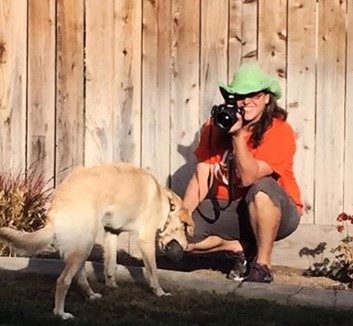Over the weekend, I attended a social distancing graduation party. And by social distancing, I mean that I sat behind a six-foot folding table that separated me from everyone else. People are dirty. Seriously.
While sitting like a social hermit on the other side of the garage, I attempted to make small talk—which is not the same as whisper talk or quiet gossiping because we had to practically yell to each other in order to hear over the various other conversations. Don’t worry. I adapt well.
Anyway, one woman I had never met came blazing into the garage, spouting off about her ex-husband; specifically, calling him a P*^&%Y, as well as a few other slurs.
This got me thinking; so, I thought. Then I spoke—across from my hermit village in the corner. “You know, I think we should talk about your P-word use.”
You have to understand, I still haven’t gotten her name, and I was about to tell her my deep-rooted thoughts on gender abuse. To say the least, stink eye was her response to my comment.
She sat down across from my solitary confinement resort, but not too close, lit a cigarette, and told me her name. Apparently, I hadn’t offended her to the point of the silent treatment and I continued with my gender linguistics lesson, which went something like this…
Why do we call someone who acts passive, or irrational, or cautious, a P*^&%Y ? Let’s take women’s lib out of the argument for a moment and just talk physiologically. A P*^&%Y takes a beating. It pops out watermelon sized humans. That shit ain’t sensitive or delicate. It’s strong as hell.
On the contrary, we’ll say someone has huge B*#@ls when they are acting tough, or aggressive, or taking a risk. But seriously, those small round boys are actually sensitive little dudes. If you kicked me in the crotch, I’m going to give a two second head start before I start swinging. On the other hand, if you kick a guy in the crotch, they’re going to cry like a…you got it… a P*^&%Y.
Ha!
Boy parts have been deemed appropriate when describing someone as tough, athletic, dangerous or aggressive; so, therefore, this gender-assigned nomenclature was developed, expanded, and passed on through generations without question.
Here’s what I’m saying. Centuries into our existence, society still accepts that women are weak, passive, and even childish. And us women, do it to ourselves. It’s not uncommon to hear forty-year old + women call their friends, The Girls, even if their get-together has nothing to do with childish actions. Sorry to inform you, but once a female reaches eighteen, she IS a Women. Us, ladies, perpetuate gender inequality and it’s made clear by our derogatory semantics. Why not call our gathering, Meeting with Friends? Simple right?
How often do you hear men called “boys”? I’ll answer this question for you. Usually, when they are playing poker with their friends, or watching sporting events, or just plain out acting like kids. Which in turn means that when women call each other “girls” are they too always performing childish acts?
What if we used these terms or nicknames with literal connotations? When a friend is acting meek or overly sensitive, we should say, “Stop acting like a testicle. Grab a pair of labia’s and let’s go!”
I personally, catch myself falling victim to the Old Way of saying particular phrases, but I’m learning to correct myself—with practice.
My new friend finished her cigarette, looked me in the eye, and said, “I think I like you.”

